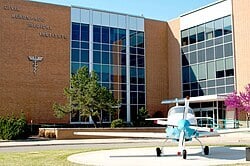FAA Part 141 Flight Training: Structure, Speed, and Self-Examining Authority The journey to...
From Suits to Sweatpants: How Flying Lost Its Class
From Suits to Sweatpants: How Flying Lost Its Class
Air travel was once an elegant affair—an event that called for your Sunday best, polished shoes, and a sense of occasion. Passengers carried themselves with dignity, flight attendants wore pressed uniforms, and the skies symbolized sophistication. Fast forward to today: sweatpants, pajamas, and viral brawls in airport terminals are common scenes. How did we arrive at this moment, where flying has lost its sense of dignity and respect?
The recent, widely publicized brawl at Atlanta’s Hartsfield-Jackson International Airport perfectly illustrates this troubling decline. Videos showing passengers trading punches, grappling on terminal floors, and shouting obscenities went viral, casting an unflattering spotlight on modern-day air travel. But this isn’t an isolated incident—it's indicative of a broader shift in travel culture.
How Did We Get Here?
Airline Deregulation and Cost-Cutting:
Since the Airline Deregulation Act of 1978, air travel has become cheaper and more accessible. Increased affordability democratized flying, but at the cost of quality. Airlines, competing fiercely for passengers, prioritized cutting costs over passenger comfort, shrinking legroom, eliminating amenities, and cramming travelers together. As the in-flight experience deteriorated, so too did passengers' sense of decorum.
Security Stress and Frustration:
The September 11 attacks drastically altered air travel, leading to heightened security, stricter regulations, and increased passenger anxiety. Frustrations from long TSA lines, intrusive screenings, and delays often spill over, setting the stage for confrontations even before passengers board their flights.
Cultural Shifts and Social Media:
Social media has played an outsized role in normalizing poor public behavior. Videos of inflight meltdowns, passenger fights, and disputes over masks regularly go viral, implicitly suggesting such behavior is both common and acceptable. The visibility of such incidents lowers collective standards and emboldens passengers to behave poorly.
The Pandemic Effect:
COVID-19 intensified tensions dramatically. Disagreements over mask mandates, fears of infection, and high stress levels have led to an unprecedented surge in onboard incidents. According to the FAA, unruly passenger incidents rose significantly post-pandemic, reflecting a clear deterioration in passenger behavior.
Reclaiming the Skies: Solutions and a Path Forward
Enhanced Enforcement and Accountability:
Airports and airlines must reinforce zero-tolerance policies for unruly passengers, imposing serious consequences like flight bans or criminal charges. Visible enforcement sends a powerful message: inappropriate behavior will not be tolerated.
Improving Passenger Experience:
Airlines could reconsider seat configurations, improve boarding procedures, and invest in staff training focused on conflict de-escalation. While these steps involve costs, reducing tensions may lower the frequency of disruptive incidents.
Promoting Passenger Responsibility:
Public campaigns encouraging mutual respect and appropriate conduct could help rebuild a culture of civility. A collective commitment to etiquette is crucial to reversing the current trend.
Reversing the Trend
The loss of class and decorum in air travel isn't irreversible. While affordability and convenience remain essential, reclaiming a measure of civility will require efforts from airlines, airports, regulators, and, most importantly, passengers themselves. The skies can be welcoming again—an environment worthy of respect, rather than a boxing ring with boarding passes.
After all, pajamas might be comfortable, but dignity never goes out of style.



